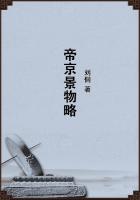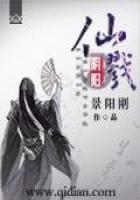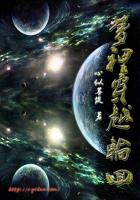With Billy on strike and away doing picket duty, and with the departure of Mercedes and the death of Bert, Saxon was left much to herself in a loneliness that even in one as healthy-minded as she could not fail to produce morbidness. Mary, too, had left, having spoken vaguely of taking a job at housework in Piedmont.
Billy could help Saxon little in her trouble. He dimly sansed her suffering, without comprehending the scope and intensity of it.
He was too man-practical, and, by his very ***, too remote from the intimate tragedy that was hers. He was an outsider at the best, a friendly onlooker who saw little. To her the baby had been quick and real. It was still quick and real. That was her trouble. By no deliberate effort of will could she fill the achiiig void of its absence. Its reality became, at times, an hallucination. Somewhere it still was, and she must find it. She would catch herself, on occasion, listening with strained ears for the cry she had never heard, yet which, in fancy, she had heard a thousand times in the happy months before the end. Twice she left her bed in her sleep and went searching--each time coming to herself beside her mother's chest of drawers in which were the tiny garments. To herself, at such moments, she would say, "I had a baby once." And she would say it, aloud, as she watched the children playing in the street.
One day, on the Eighth street cars, a young mother sat beside her, a crowing infant in her arms. And Saxon said to her:
"I had a baby once. It died."
The mother looked at her, startled, half-drew the baby tighter in her arms, jealously, or as if in fear; then she softened as she said:
"You poor thing."
"Yes," Saxon nodded. "It died."
Tear's welled into her eyes, and the telling of her grief seemed to have brought relief. But all the day she suffered from an almost overwhelming desire to recite her sorrow to the world--to the paying teller at the bank, to the elderly floor-walker in Salinger's, to the blind woman, guided by a little boy, who played on the concertina--to every one save the policeman. The police were new and terrible creatures to her now. She had seen them kill the strikers as mercilessly as the strikers had killed the scabs. And, unlike the strikers, the police were professional killers. They were not fighting for jobs. They did it as a business. They could have taken prisoners that day, in the angle of her front steps and the house. But they had not.
Unconsciously, whenever approaching one, she edged across the sidewalk so as to get as far as possible away from him. She did not reason it out, but deeper than consciousness was the feeling that they were typical of something inimical to her and hers.
At Eighth and Broadway, waiting for her car to return home, the policeman on the corner recognized her and greeted her. She turned white to the lips, and her heart fluttered painfully. It was only Ned Hermanmann, fatter, bronder-faced, jollier looking than ever. He had sat across the aisle from her for three terms at school. He and she had been monitors together of the composition books for one term. The day the powder works blew up at Pinole, breaking every window in the school, he and she had not joined in the panic rush for out-of-doors. Both had remained in the room, and the irate principal had exhibited them, from room to room, to the cowardly classes, and then rewarded them with a month's holiday from school. And after that Ned Hermanmann had become a policeman, and married Lena Highland, and Saxon had heard they had five children.
But, in spite of all that, he was now a policeman, and Billy was now a striker. Might not Ned Hermanmann some day club and shoot Billy just as those other policemen clubbed and shot the strikers by her front steps?
"What's the matter, Saxon?" he asked. "Sick?"
She nodded and choked, unable to speak, and started to move toward her car which was coming to a stop.
"I'll help you," he offered.
She shrank away from his hand.
"No; I'm all right," she gasped hurriedly. "I'm not going to take it. I've forgotten something."
She turned away dizzily, up Broadway to Ninth. Two blocks along Ninth, she turned down Clay and back to Eighth street, where she waited for another car.
As the summer months dragged along, the industrial situation in Oakland grew steadily worse. Capital everywhere seemed to have selected this city for the battle with organized labor. So many men in Oakland were out on strike, or were locked out, or were unable to work because of the dependence of their trades on the other tied-up trade's, that odd jobs at common labor were hard to obtain. Billy occasionally got a day's wdrk to do, but did not earn enough to make both ends meet, despite the small strike wages received at first, and despite the rigid economy he and Saxon practiced.
The table she set had scarcely anything in common with that of their first married year. Not alone was every item of cheaper quality, but many items had disappeared. Meat, and the poorest, was very seldom on the table. Cow's milk had given place to condensed milk, and even the sparing use of the latter had ceased. A roll of butter, when they had it, lastad half a dozen times as long as formerly. Where Billy had been used to drinking three cups of coffee for breakfast, he now drank one. Saxon boiled this coffee an atrocious length of time, and she paid twenty cents a pound for it.
The blight of hard times was on all the neighborhood. The families not involved in one strike were touched by some other strike or by the cessation of work in some dependent trade. Many single young men who were lodgers had drifted away, thus increasing the house rent of the families which had sheltered them.
"Gott!" said the butcher to Saxon. "We working class all suffer together. My wife she cannot get her teeth fixed now. Pretty soon I go smash broke maybe."
Once, when Billy was preparing to pawn his watch, Saxon suggested his borrowing the money from Billy Murphy.















